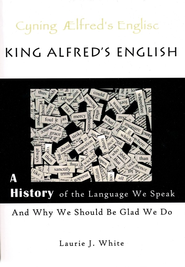I am sickened and saddened by the news that Planned Parenthood is dealing in baby parts. I imagine you are troubled as well.
Whether they are truly selling them or, as they say, making them available, there is no defense for these actions.
This exposé is an organic teaching moment for us and our teens. How can we help our teens understand what is godly and debunk the “humanitarian” argument?

Humanitarian?
According to Dr. Deborah Nucatola from Planned Parenthood, the babies’ body parts are delivered (sold?) to companies who want them for research, companies that put in a list to request certain body parts. Here is a screenshot of the video:

According to Planned Parenthood’s PR firm, this is a totally “humanitarian undertaking.” [Note: Parents, there may be objectionable material on any of these links. Please use your own judgment.]
I encountered this “humanitarian” argument in my high school days in the early 1970s. Believe me, it’s been around a long time. It goes something like this: We’re going to have abortions, so we might as well use them to further research and help humanity.
Here’s a letter to the editor in USA Today on the topic of embryonic stem cells. What you will read below is the same argument Planned Parenthood is applying today to unborn babies and their body parts. Ask your teens to spot the faulty thinking in it:
Why do [people] think it is more moral to wash [embryonic] stem cells down a drain than to use them to help save and improve millions of American lives? If opponents want to think of embryonic stem cells as “lives,” why not think of them as soldiers who are sacrificed to protect us from the war we all are fighting: to keep our country healthy. By refusing to build an army to protect our nation, [politicians] are failing to help keep people healthy.*
Ask these questions
You can use that letter to the editor with your teens and help them see the logical fallacies of the humanitarian argument. Ask them these questions:
1. Is it true that aborted babies can be compared with soldiers?
2. Where does that comparison break down?
3. Why is no one demanding organ donations from children, teens, or adults for research?
4. What would be the reaction if this were being done to unborn puppies or tigers?
I have some ideas about those fallacies at the bottom of this post.
A Personal Story
A few years ago, my brother was struck by a drunk driver and then went into a coma. It was a painful, tearful week as my parents, sisters, and other brother gathered around Phil’s hospital bed to wait and pray.
When it became clear to the doctors that Phil’s brain stem was failing, an organ-donor organization was called in to talk with the family because, years ago, Phil had volunteered to be an organ donor. Now, my mother had to sign off on any organs to be harvested.
“Liver?”
“Yes,” she said.
“Heart?”
“Yes.”
“Eyes?”
Yes. Yes.
It was a gut-wrenching meeting, this divvying up of my brother’s body parts while he lay dying in a room nearby, but he had requested it years before. It had been his decision.
Despite all the planning, the doctors could not harvest Phil’s organs until Phil had actually died. An ethics committee was even in the room at the time to make sure Phil was not alive.
Donors?
What about the babies? Their hearts are still beating when the abortion and harvesting begin. Have they volunteered? Have they asked that, while they are still alive, someone would sever their heads from their bodies and sell their heads to science?
When their mothers sign a paper giving permission to harvest their baby’s body parts, has someone explained to the mothers what will be done? And is it even legal for one person to sign away the body parts of another living person who has not signed up to be an organ donor?
According to Dr. Charmaine Yoest, President & CEO of Americans United for Life (AUL), the legal architects of the pro-life movement, “A civilized country does not traffic in human baby parts . . . and, frankly, it is against the law to profit from human body parts.”
You and your teens may want to listen to the whole broadcast this quote comes from. It’s Chris Fabry Live on Moody Radio and lasts about 48 minutes. Fabry tackles the news of the Planned Parenthood body-parts video and the misuse of language (doublespeak) that accompanies this and other current issues.
Connotations and Euphemisms
Here’s something else to discuss with your teens: Words matter. They have connotations. They can be used to hide true meanings. They can be deceptive euphemisms. For a tutorial on connotations and euphemisms, click or tap here. >>
When your teens read that an “activist group” has “secretly” (translation: “wrongly,” “unfairly,” or “shame on you”) recorded a conversation “purportedly” about selling baby body parts, is their reaction to downplay it because it’s only an activist (i.e. “fringe”) group that is reporting on something purportedly (“supposedly,” “not yet proven,” or “probably not”) happening?
Let’s help our teens not be led astray by cleverly conceived arguments that make the unacceptable acceptable or that ridicule or scorn those who stand for sound moral and ethical practices.
I’ve always thought that abortion is illogical and is an arrogant act. To that end, I have this on the back of my car: “Abortion robs an unborn woman of her choice.”
The Fallacies of Logic
Here are those ideas about the logical fallacies in the letter to the editor:
1. This writer states an opposing argument that may not be true for the opposition (straw man fallacy): that folks against embryonic stem-cell research think it is “moral to wash the cells down the drain” and that they would rather waste resources than improve lives (a false dilemma in a straw man fallacy). Any argument will be stronger by choosing and refuting an opposing argument that the opposition really holds.
2. Analogies can be useful, but they can also be illogical (weak analogy). In this writer’s case, he compares embryonic stem cells to adult soldiers. While it is true that adult soldiers may sacrifice themselves to protect their nation, they have volunteered for that duty and have decided that it is worth the risk. The decision to sacrifice is theirs. Plus, they are paid. Not so with embryonic stem cells or aborted babies. They have not volunteered for active duty, they did not give their permission to be sacrificed, and they receive no compensation. Be careful when using analogies; make sure they apply and are logical within the context of your argument. An analogy cannot make an argument, but it can be an example for an argument.
3. The last sentence contains a false dilemma, indicating that building an army of embryonic stem cells is the only way to keep people healthy.
4. While not a fallacy, putting down opponents (as the tone of this letter does) is not a helpful way to gain their respect.
Note: The letter to the editor and the logical fallacies are taken from The Power in Your Hands: Writing Nonfiction in High School, 2nd Edition.
You can find a High School Prompt that uses the topic of abortion here.
*Levitt, Arnie. Letter. USA TODAY 28 June 2007.
.Yours for a more vibrant homeschool,

Teachers, connect with Sharon on Facebook or Pinterest!










